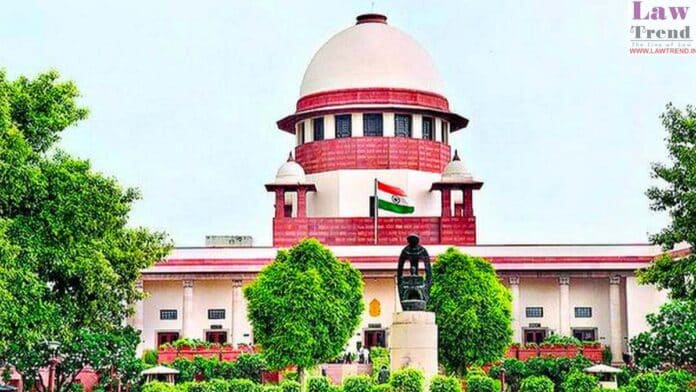The law of the land must be followed, the Supreme Court said on Thursday while expressing displeasure over the Nagaland assembly passing a resolution to repeal the municipal act and resolving not to hold elections to the urban local bodies.
The apex court observed that it respects the local sentiments but asserted authorities cannot let the law of the land not prevail especially when there is nothing affecting the personal rights or personal laws.
A bench of justices S K Kaul and A Amanullah is hearing a petition seeking 33 per cent reservation for women in the elections to local bodies in the state.

The top court had on April 5 stayed the March 30 notification cancelling till further orders the elections to the urban local bodies in Nagaland which were scheduled for May 16 after almost two decades.
Following pressure from tribal organisations and civil society groups, the Nagaland assembly passed a resolution to repeal the municipal act and resolved not to hold the elections.
On March 30, the State Election Commission (SEC) issued a notification cancelling the election programme notified earlier “till further orders” in view of the repeal of the Act.
During the hearing on Thursday, the bench observed it is not something adverse to the interest of the state which is happening as the people will elect their representatives in the elections.
The top court said the Centre have to find a solution in the matter.
“We respect the local sentiments but the law of the land must be followed and it is your duty as the Union government… You have to find a solution. We cannot let the law of the land not being followed,” the bench said.
“You can’t let the law of the land not prevail especially when there is nothing affecting your personal rights or personal laws in this behalf. We are only getting people to represent you who will look after your interest at the grass-root level. How can one have objection to that?” it observed.
The bench told the counsel appearing for Nagaland that it has given long enough rope to the state in the matter.
“We have given you a long rope. Don’t make it so long that you hang yourself,” it observed.
The bench noted that Additional Solicitor General K M Nataraj, appearing for the Centre, and the state’s counsel have submitted that they are at the task and request for a short accommodation.
“We have put to them the seriousness of the matter as long rope also has its limitations,” it said while listing the matter for hearing in July.
During the hearing, the bench told the state’s counsel, “In the nutshell, the position is, you are not willing to implement the assurances given to the court on the right or wrong pretext that there are groups who don’t want it and you don’t want to go against them.”
It asked if a section of a society have a contrary point of view on the issue, does the government “succumb to the blackmail”.
“We are sensitive to the issue in the state and therefore we gave time. There has to be some end to it,” the bench said, adding the state can’t keep the issue hanging.
The Centre had earlier told the top court that inter-ministerial discussions are on in pursuance to the apex court’s order seeking its stand on whether the constitutional scheme of one-third reservation for women in municipalities and town councils can be violated by state of Nagaland.
In its April 17 order, the top court had noted that the “ingenious method” adopted to evade the undertaking given to the court earlier about holding the election has been the repeal of the Nagaland Municipal Act, 2001 itself.
It had also observed that in respect of the special provisions with respect of Nagaland under Article 371-A of the Constitution, nothing has so far emerged to advance a plea that religious or social practices of Nagas or Naga customary law and procedure denies the right of equality to women insofar as the participatory process is concerned in such elections.
The apex court had noted in its March 14 order that the SEC counsel had submitted the elections will be held on May 16.
Also Read
The petitioners have moved an application before the top court through advocate Satya Mitra against the cancellation of the elections and urged it to take contempt action for “disobeying” the March 14 order.
Besides seeking quashing of the March 30 notification issued by the SEC cancelling the election programme, the application has also sought setting aside of the Nagaland Municipal (Repeal) Act, 2023.
The SEC had earlier announced elections to the 39 urban local bodies in the state. Of these 39 bodies, Kohima, Dimapur and Mokokchung have municipal councils, while the rest are town councils.
Several Naga tribal bodies and civil society organisations had opposed the elections under the Nagaland Municipal Act 2001, asserting it infringes the special rights for Nagaland guaranteed by Article 371-A of the Constitution.
The 2001 Act, which was amended later, made 33 per cent reservation of seats for women mandatory for holding the elections, as directed by the Supreme Court.
Urban local bodies elections in Nagaland have been long overdue with the last elections having been held in 2004.







